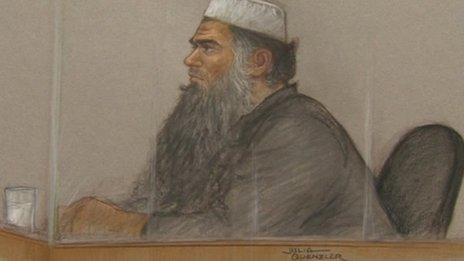Abu Qatada appeal: May defends removal delay
- Published
Theresa May: ''The government is clear... the three-month lapsed on Monday night''
The home secretary has defended her handling of attempts to deport radical cleric Abu Qatada, but said he is likely to remain "for many months".
Theresa May said Abu Qatada's lawyers had no right to appeal to the European Court of Human Rights because the deadline had passed.
But an official at the Secretariat of the Council of Europe said the appeal was within the deadline.
The PM said he was confident Abu Qatada would be removed from the UK.
But shadow home secretary Yvette Cooper said "chaos has turned into farce".
In a statement to the Commons, Theresa May said the three-month deadline for Abu Qatada's appeal had passed before the application was submitted.
Mrs May said: "The government is clear that Abu Qatada has no right to refer the case to the Grand Chamber of the European Court of Human Rights, since the three-month deadline to do so lapsed at midnight on Monday."
She confirmed she had written to the ECHR to argue Abu Qatada's application should be rejected and the case heard by the UK's Special Immigration Appeals Commission (Siac) instead.
Delays
However Mrs May conceded that the deportation process and any potential Siac appeal were now on hold.
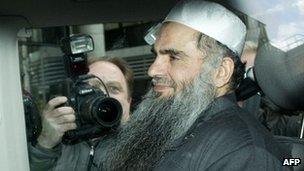
Abu Qatada faces a re-trial in Jordan for plotting bomb attacks against American and Israeli tourists
"Despite the progress we have made, the process of deporting Qatada is likely to take many months," she told MPs.
She also said Abu Qatada had chosen to use delaying tactics, which he had been doing since 2001.
In the Commons, Mrs Cooper criticised Mrs May for "partying with X Factor judges" as Qatada's lawyers launched their appeal.
"When the home secretary is accused of not knowing what day of the week it is, chaos and confusion have turned into farce," she said.
"But this farce has serious consequences: in additional delays; in a greater risk Abu Qatada will be out on bail; in a risk he will sue the government for recommencing deportation proceedings while injunction 39 was still in place."
Yvette Cooper: ''When the Home Secretary is accused of not knowing what day of the week it is, chaos and confusion has turned into farce''
An official at the Secretariat of the Council of Europe sent a message to the House of Commons Library regarding the appeal which said: "I would say that [the appeal was lodged] just in time, but of course the Court may decide otherwise."
Prime Minister David Cameron said: "[Abu Qatada] is a danger to our country and we want to remove him from our country. However long it takes and however many difficulties there are, we will get him out.
"I sometimes wish I could put him on a plane and take him to Jordan myself. But government has to act within the law. That is what we'll do. We will get this done."
Ministers believe the three-month deadline for appealing against the ECHR ruling passed on Monday night and, on Tuesday, Mrs May told MPs she had received fresh guarantees from Jordan that Abu Qatada would face a fair trial and that he could now be deported.
But on Wednesday the court said it had received a request for an appeal at 22:00 BST on Tuesday, which it said was before the deadline.
The deportation process cannot begin until a panel of judges has decided whether the case should go to the Grand Chamber of the court.
The ECHR originally blocked Abu Qatada's deportation to Jordan on 17 January.
The judges ruled that, while they were satisfied that the preacher would not face ill-treatment in Jordan, the UK could not deport him without assurances from Jordan that evidence gained through torture would not be used against him.
Abu Qatada's lawyers are appealing against the part of the court's ruling that stated it was satisfied that he would not face torture if he was deported.
An ECHR spokeswoman said the panel always considered the timing of the referral request and decided whether it was before or after the deadline.
Justice Secretary Ken Clarke dismissed the row over timings as "hysterical angst" and said he was not sure why everyone was "wildly excited" about a "procedural wrangle".
"I'm not sure why it's regarded as such a big deal," he told BBC Breakfast.
"We know perfectly well legal proceedings are still going to take a few months, they're bound to do so."
Meanwhile justice ministers from 47 countries have gathered in Brighton to discuss reforms to the ECHR - including whether it should hear fewer appeals.
The UK has criticised some of its judgements - including blocking the deportation of Abu Qatada - and wants to limit the court's powers.
- Published19 April 2012
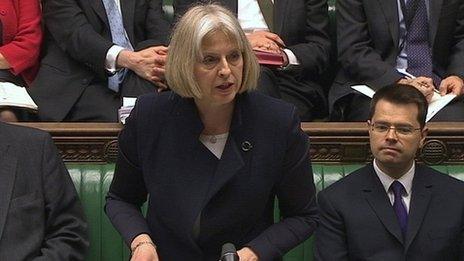
- Published19 April 2012
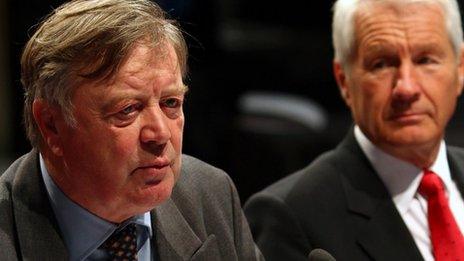
- Published18 April 2012
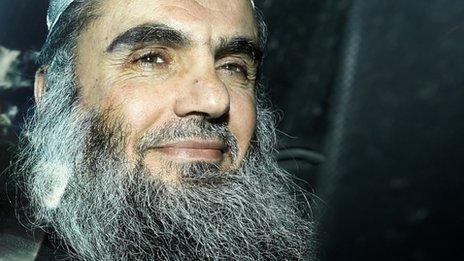
- Published26 June 2014
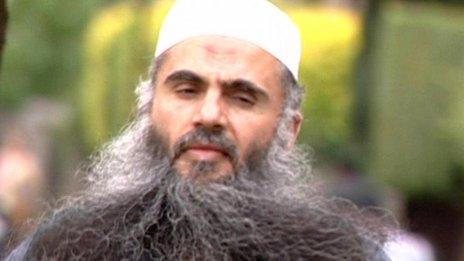
- Published23 April 2012
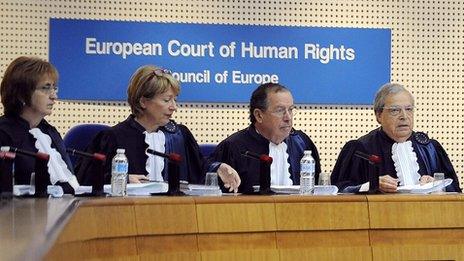
- Published17 April 2012
